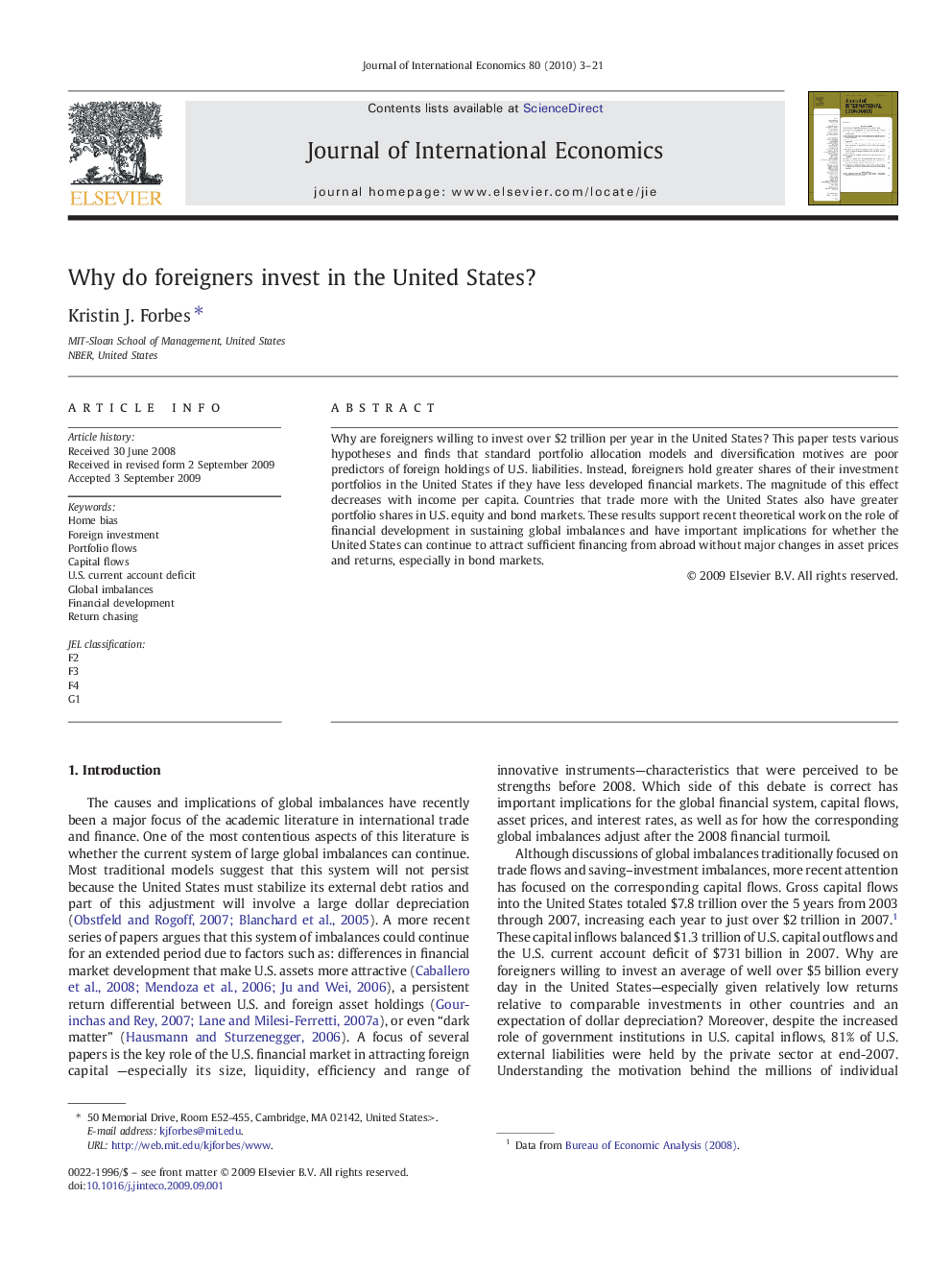| Article ID | Journal | Published Year | Pages | File Type |
|---|---|---|---|---|
| 962395 | Journal of International Economics | 2010 | 19 Pages |
Abstract
Why are foreigners willing to invest over $2Â trillion per year in the United States? This paper tests various hypotheses and finds that standard portfolio allocation models and diversification motives are poor predictors of foreign holdings of U.S. liabilities. Instead, foreigners hold greater shares of their investment portfolios in the United States if they have less developed financial markets. The magnitude of this effect decreases with income per capita. Countries that trade more with the United States also have greater portfolio shares in U.S. equity and bond markets. These results support recent theoretical work on the role of financial development in sustaining global imbalances and have important implications for whether the United States can continue to attract sufficient financing from abroad without major changes in asset prices and returns, especially in bond markets.
Keywords
Related Topics
Social Sciences and Humanities
Economics, Econometrics and Finance
Economics and Econometrics
Authors
Kristin J. Forbes,
